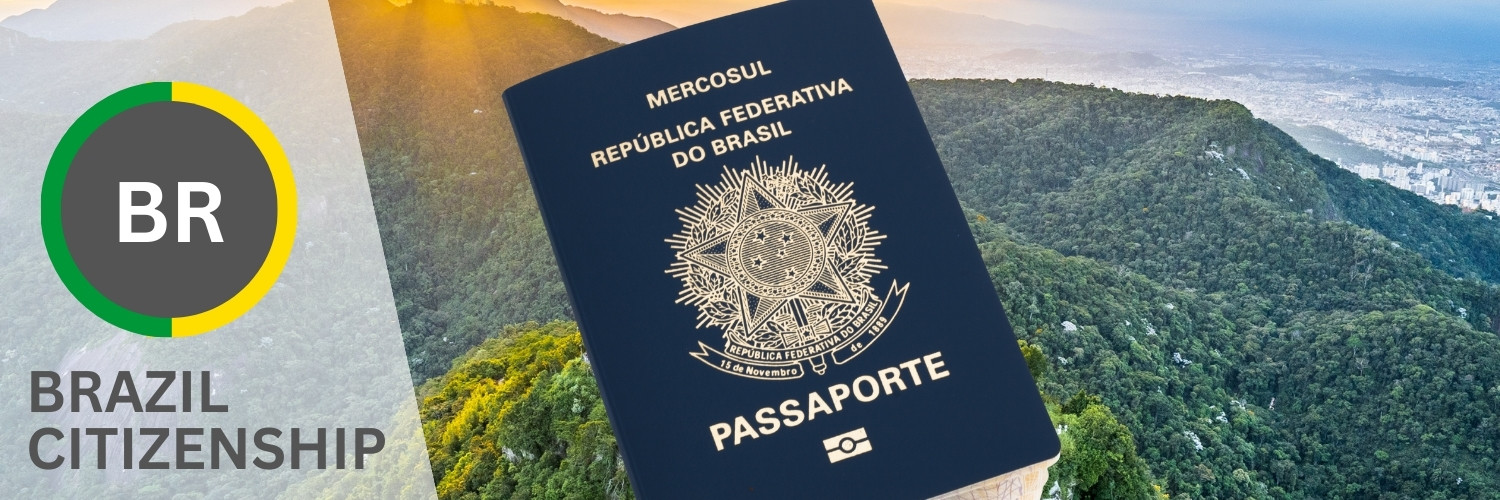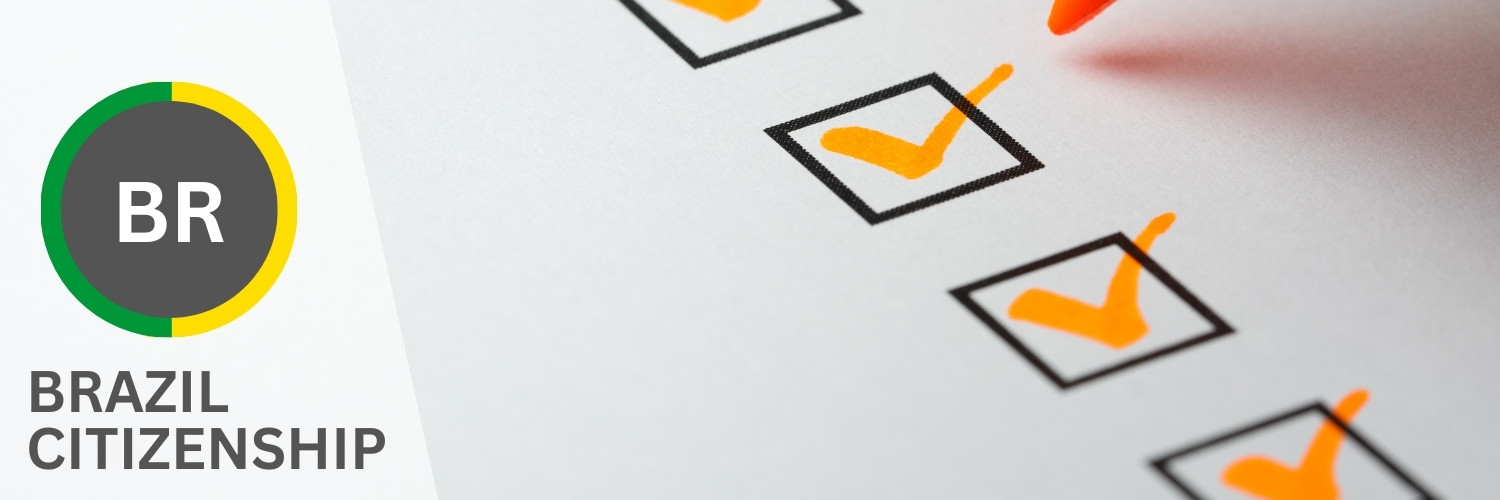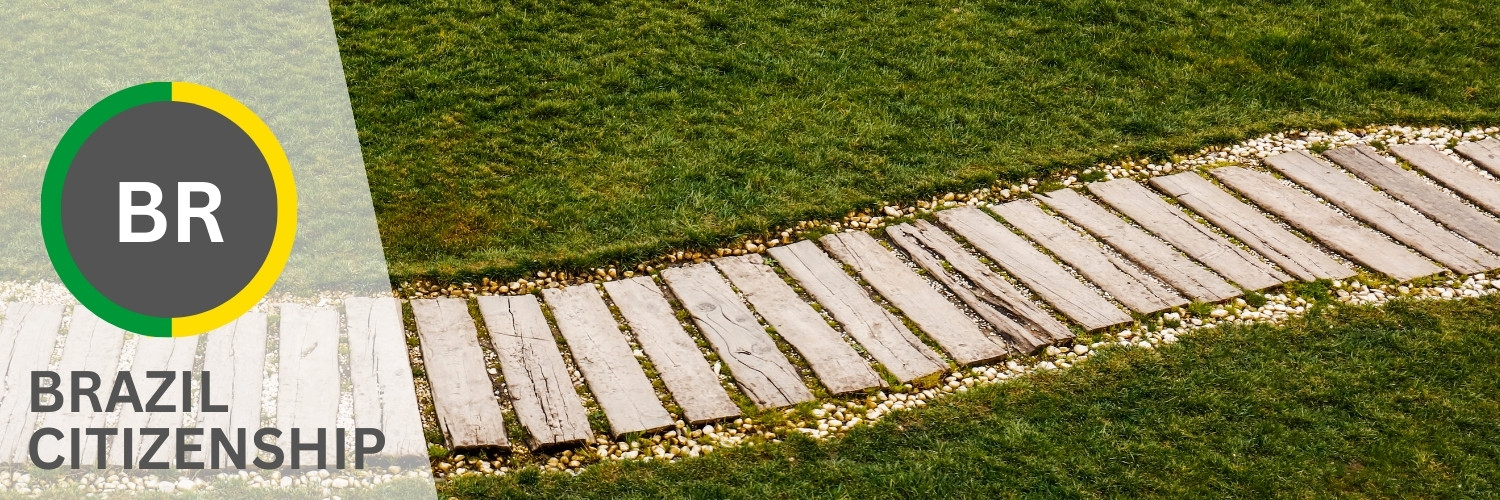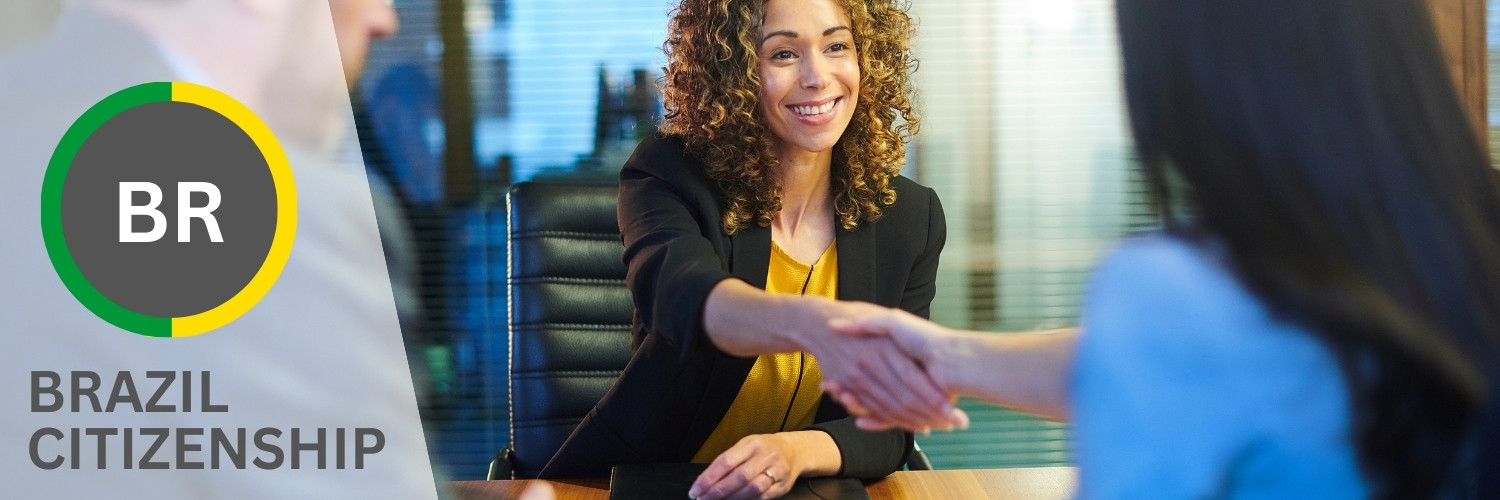Applying to Brazilian Citizenship

Embarking on the Journey to Brazilian Citizenship
Gaining Brazilian citizenship marks the beginning of a new chapter, offering a wealth of opportunities and rights within the vibrant and diverse culture of Brazil. Whether you have familial ties, have established a life here, or simply fallen in love with the country, becoming a Brazilian citizen can be a rewarding endeavor.
This guide aims to provide a comprehensive overview of the process for applying for Brazilian citizenship. It’s designed to navigate you through various eligibility criteria, required documentation, and the step-by-step application process. We also delve into the rights and responsibilities that come with being a Brazilian citizen, along with insights into dual citizenship regulations.
Brazilian citizenship opens doors to a multitude of benefits including voting rights, ease of travel within South America, and a sense of belonging in the Brazilian community. However, it’s a process that requires dedication, from understanding legal requirements to embracing the country’s language and culture.
Whether you are seeking citizenship through naturalization, marriage, or other means, it’s important to embark on this journey with clear guidance and knowledge. Let’s explore the path to achieving Brazilian citizenship and what it entails, paving your way to becoming an integral part of this dynamic and welcoming nation.
Brazilian Citizenship: Eligibility Criteria

Who Can Apply?
Brazil offers several pathways to citizenship, each with its own set of eligibility criteria:
Citizenship by Birth:
- Individuals born in Brazil, regardless of the nationality of their parents.
- Children born to Brazilian parents living abroad, provided they are registered at a Brazilian consulate or choose to reside in Brazil.
Citizenship by Marriage:
- Foreign nationals married to Brazilian citizens.
- Typically requires a minimum period of uninterrupted marriage and residency in Brazil.
Citizenship by Residency:
- Foreign nationals who have legally resided in Brazil for an uninterrupted period.
- The specific duration depends on the applicant’s nationality, with shorter periods for citizens of Portuguese-speaking countries.
Citizenship by Descent:
- Children born abroad to Brazilian citizens may be eligible for citizenship.
- Specific documentation and registration requirements apply.
Naturalization:
- Individuals who have lived in Brazil for an extended period and meet certain criteria related to integration, language proficiency, and absence of criminal record.
Special Considerations:
- Dual nationality is generally recognized, but it’s important to verify how Brazilian citizenship may affect your current nationality.
- Each pathway to citizenship has specific nuances and may require additional criteria to be met.
Understanding the eligibility criteria is the first step towards applying for Brazilian citizenship. Ensure that you fall under one of these categories and meet all the requirements before proceeding with the application.
Brazilian Citizenship: Required Documentation

Gathering the Essentials
The documentation required for Brazilian citizenship applications varies based on the eligibility pathway, but generally includes:
Basic Documents:
- Valid Passport: A copy of your current, valid passport.
- Birth Certificate: Official birth certificate, translated into Portuguese by a certified translator.
- Proof of Residence: Documents demonstrating continuous residence in Brazil, such as utility bills or rental agreements.
Additional Documents for Citizenship by Marriage:
- Marriage Certificate: Official marriage certificate issued in Brazil or duly legalized if issued abroad.
- Joint Financial Records: Proof of shared financial responsibilities and assets.
Additional Documents for Citizenship by Residency or Naturalization:
- Police Clearance: Criminal record checks from Brazil and any other country of residence in the past five years.
- Proof of Income: Documents showing financial stability and ability to support oneself in Brazil.
For All Applicants:
- Application Form: Completed citizenship application form.
- Photographs: Recent passport-sized photographs.
- Fee Receipt: Proof of payment of the applicable citizenship application fee.
Important Tips:
- Ensure all foreign documents are properly legalized or apostilled and translated into Portuguese by a certified translator.
- Double-check the specific requirements with the Brazilian Ministry of Justice or the relevant authorities as they may vary.
- Keep copies of all submitted documents for your records.
By diligently gathering and organizing the required documentation, you can ensure a smoother application process for Brazilian citizenship.
Brazilian Citizenship: Application Process

Navigating the Steps
The process of applying for Brazilian citizenship involves several key steps:
1. Determine Eligibility:
- Confirm which pathway to citizenship applies to you (birth, marriage, residency, or naturalization).
- Ensure you meet all the specific criteria for that pathway.
2. Gather Documentation:
- Collect all necessary documents as per your eligibility category.
- Make sure foreign documents are properly translated and legalized.
3. Complete Application Form:
- Obtain and fill out the citizenship application form, available from the Brazilian Ministry of Justice or relevant authorities.
4. Submit Application:
- Submit the completed application form along with all required documents.
- This is typically done at a Federal Police station in Brazil or a Brazilian consulate if abroad.
5. Pay Application Fees:
- Pay the necessary application fees, and keep the receipt for your records.
6. Attend Interview:
- In some cases, you may be required to attend an interview or provide additional information.
7. Wait for Processing:
- Citizenship applications can take time to process. The duration varies depending on the case and the current workload of the authorities.
8. Notification of Decision:
- You will be notified of the decision on your application. If approved, further instructions will be provided.
9. Take Oath of Citizenship (if required):
- Some pathways to citizenship may require you to take an oath of citizenship.
Key Considerations:
- Ensure accuracy and completeness in your application to avoid delays.
- Stay informed about the status of your application and respond promptly to any requests from authorities.
- Be prepared for a potentially lengthy process and plan accordingly.
By following these steps carefully and with patience, you can navigate the citizenship application process towards achieving your goal of becoming a Brazilian citizen.
Brazilian Citizenship: Language and Integration Requirements

Embracing Brazilian Culture and Language
For those seeking Brazilian citizenship, it’s essential to not only understand the legal aspects but also integrate into Brazilian society. This includes language proficiency and cultural awareness.
Portuguese Language Proficiency:
- Proficiency in Portuguese is a key requirement for citizenship.
- Applicants may need to pass a language test demonstrating their ability to communicate effectively in Portuguese.
- Language classes and immersion in daily life are effective ways to improve language skills.
Cultural Integration:
- Knowledge of Brazilian history, culture, and values is often expected.
- Participation in community activities and local events can help demonstrate integration.
- Understanding and respecting Brazilian customs and traditions is crucial.
Preparing for Integration:
- Consider taking formal Portuguese language courses.
- Engage with local communities and participate in cultural events.
- Stay informed about Brazilian current affairs and history.
Meeting these language and integration requirements not only strengthens your citizenship application but also enhances your experience and connection with Brazil.
Brazilian Citizenship: Interview and Evaluation

Facing the Final Hurdle
The interview and evaluation stage is a crucial part of the citizenship application process. Here’s what you can expect and how to prepare:
Interview Process:
- Applicants may be called for an interview with Brazilian authorities.
- The interview typically covers questions about your background, reasons for seeking citizenship, and knowledge of Brazil.
Evaluation Criteria:
- Language Skills: Ability to communicate in Portuguese.
- Integration: Understanding of Brazilian culture, society, and values.
- Motivation: Genuine reasons for wanting to become a Brazilian citizen.
- Background Check: Assessment of your criminal record and overall background.
Preparing for the Interview:
- Practice Portuguese: Ensure you can comfortably converse in Portuguese.
- Review Your Application: Be familiar with the information you provided.
- Understand Brazilian Culture: Brush up on Brazilian history, politics, and social norms.
- Be Honest and Confident: Provide truthful answers and articulate your motivation clearly.
Post-Interview Steps:
- After the interview, your application will be further reviewed.
- You may be asked to provide additional documentation or clarification.
By preparing thoroughly for the interview and evaluation, you can confidently demonstrate your readiness and commitment to becoming a Brazilian citizen.
Brazilian Citizenship: Processing Time and Fees
Anticipating the Timeline and Costs
Understanding the processing time and associated fees is essential in planning your application for Brazilian citizenship.
Processing Time:
- The time frame for processing citizenship applications can vary widely.
- It generally ranges from a few months to a couple of years, depending on the complexity of your case and the current workload of the authorities.
- Regular follow-ups and ensuring your application is complete and accurate can help in avoiding unnecessary delays.
Application Fees:
- There are fees associated with the citizenship application process.
- The exact amount can vary based on the type of citizenship application.
- It’s advisable to check the most current fee structure either on the official Brazilian government website or at the Brazilian consulate.
Payment Methods:
- Fees can usually be paid via bank transfer, credit card, or in some cases, in cash at designated offices.
- Keep the receipt of payment as it will be required during the application process.
Additional Costs:
- Consider potential costs for document translation, legalization, and possible travel expenses for interviews or document submission.
By being aware of the processing time and fees, you can manage your expectations and budget accordingly. Remember, the journey to citizenship is a significant commitment, but the rewards of becoming a Brazilian citizen are manifold.
Brazilian Citizenship: Approval and Oath of Citizenship
Finalizing Your Citizenship Journey
Once your Brazilian citizenship application is approved, there are a few final steps to officially become a Brazilian citizen.
Notification of Approval:
- You will receive official notification from the Brazilian authorities confirming the approval of your citizenship application.
- This notification will include instructions for the next steps.
Oath of Citizenship:
- In some cases, new citizens are required to take an oath of allegiance to Brazil.
- The oath ceremony is a formal event where you publicly commit to upholding the laws and principles of Brazil.
- Details about the time, date, and location of the ceremony will be provided.
Citizenship Certificate:
- After taking the oath, you will receive a citizenship certificate.
- This certificate is an official document confirming your status as a Brazilian citizen.
Updating Personal Documents:
- Once you have your citizenship certificate, you can proceed to update your personal documents.
- This includes applying for a Brazilian passport, voter’s ID, and updating your status in other official records.
Embracing Your New Identity:
- Celebrate your new citizenship and embrace the rights and responsibilities that come with it.
- Engage in the community as a full-fledged Brazilian citizen.
The approval and oath of citizenship mark the culmination of your journey to becoming a Brazilian citizen, opening a new chapter of opportunities and experiences in Brazil.


